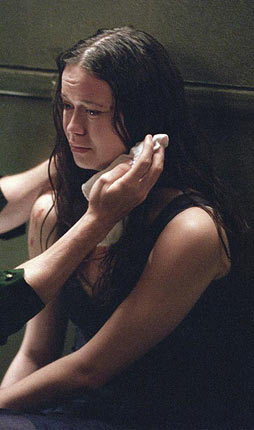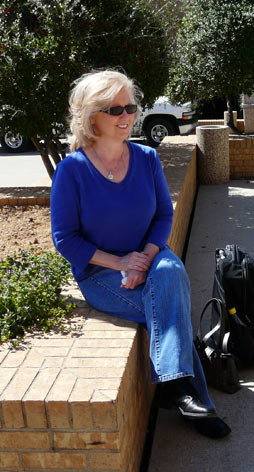By Eric Spikes/reporter
Representatives of Jubilee Theatre in Fort Worth visited NE Campus Feb. 28 to discuss the play A Lesson Before Dying, a stage adaptation of Ernest J. Gaines’ book.
English classes from the Cornerstone Program, an honors program, have been studying the acclaimed novel and had seen the production at Jubilee, a Fort Worth-based African-American theater, known for its productions about black issues.
Actor Mandel Hill and artistic director Ed Smith discussed the play with the NE Campus students.
The story depicts the struggle of being human, and being African-American on top of that. In the play, a man on the wrong end of society in 1940s Louisiana is sentenced to die for a crime he did not commit.
“[The play] moved me to tears. It was just so sad,” one Cornerstone student said.
Talk made its way to the heart of the play, which is the struggle between races.
To understand the difference between being African-American in the mid-20th century and in this century, the students needed only to look at the life experiences of Hill, who played Grant in the play, and those of the Smith, who is older.
Smith spoke of making a trip to the South in his youth and of what his mother told him before he left.
“ Eddie, whatever you do,’ she told me, ‘you can’t do what you do in Philadelphia,’” he said.
Smith obeyed his mother to the best of his ability, but he remembers being taken to jail along with a friend once while in the South. He and his friend, who was white, were seen talking together in public. The police officer told them it was against the law.
“I got mad inside … I understand the times,” he said. “But I thought, ‘Oh my goodness, I can’t believe he’s saying that.’”
Active in theater since the 1960s, Smith has opened theaters centered on African-American culture in Buffalo, New York, and Toronto, Ontario, Canada. He also taught at two prominent schools and spent time with prominent civil rights fiction writer James Baldwin.
Smith said he was glad to have the students see the play.
“I hope they continue to see more plays, to learn more about the African-American culture,” he said.

























